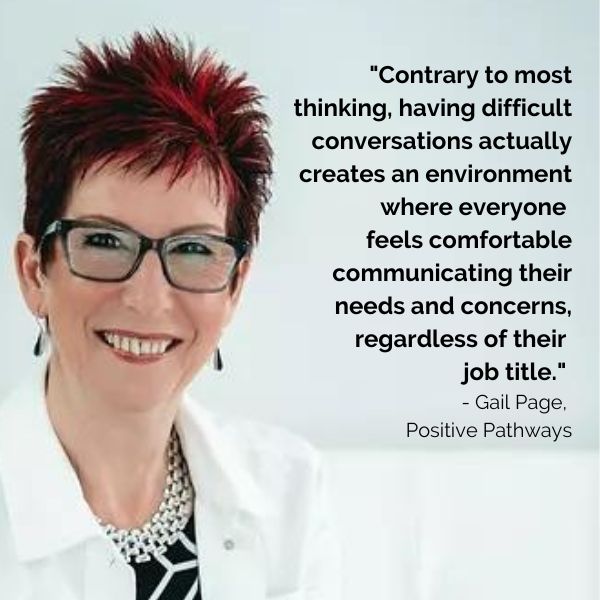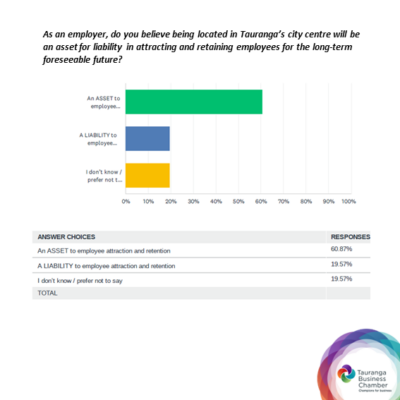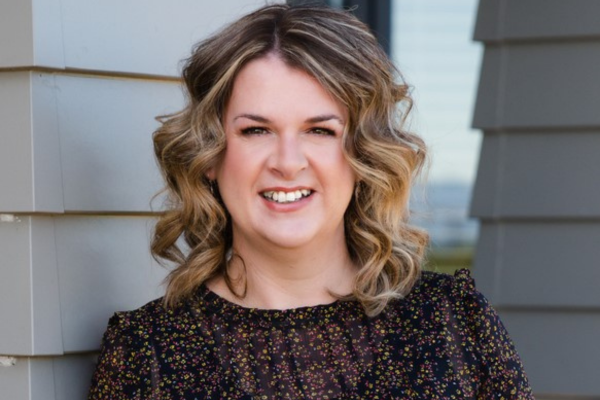In any organization, culture is key. A healthy culture is one that encourages its employees to show up as their best selves, creating an environment of openness and honesty, trust and respect. Not only does this reduce costly staff turnover and help you retain your best people; it goes a long way in reducing stress, conflict, bullying, and toxic behaviours.
However, difficult conversations are an inevitable part of the workplace. And although these conversations can be challenging, there are several reasons why it is crucial that we have them.
We spoke to Gail from Positive Pathways who gave us some tips on how to make these conversations easier, and why having difficult conversations can have a positive outcome for your business.
—
Contrary to most thinking, having difficult conversations actually creates an environment where everyone feels comfortable communicating their needs and concerns, regardless of their job title.
When you avoid difficult conversations, you are actually sending the message that it is not safe to express opinions or ideas that may be contrary to the status quo. This can lead to a suppression of creativity and a stifling of innovation. By avoiding difficult conversations, you are missing out on an opportunity to build trust and rapport with your team.
Having difficult conversations can be challenging, but there are several reasons why it’s crucial we have them. Here are just a few:
✅ We build trust-based relationships and develop a supportive culture when we feel safe to be open and honest with each other.
✅ We create an environment of mutual respect when we resolve conflicts before they escalate.
✅ We avoid potential arguments or hurt feelings further down the road when we address problems early on.
✅ We understand each other better and gain empathy for others when we share our thoughts and experiences, without fear of reprisal.
Mastering the art of difficult conversations
So, how do we master the art of having difficult conversations? Here are some general tips that can be helpful.
Mindset matters
Make sure you’re in the right mindset. If you’re feeling angry or defensive, it’s likely that the conversation will not go well.
Be clear
Be clear about what you want to discuss. Having a specific outcome in mind for the conversation will help keep the discussion on track.
Listen and be present
Listen more than you speak. Being present stops you getting caught up in your own thoughts and perspectives, and ensures you listen to what the other person has to say.

Don’t assume
Avoid making assumptions and jumping to conclusions, which are often wrong. If you’re unsure about something, ask open questions!
Stay positive
This doesn’t mean avoiding negative topics, it just means focusing on the positive aspects of the situation such as finding a solution or moving forward.
Difficult conversations can help build trust, resolve conflicts, and improve communication. And by following the tips above, you can make sure that your difficult conversations are productive and beneficial for everyone involved!
Gail is a communication and mindset coach. Shaker-upper of workplace cultures – in the most positive of ways. She supports businesses to help create a healthy workplace, where people know how to have great conversations and can communicate well in tricky situations. She is hosting a ‘How to Make Difficult Conversations Easy workshop on Wednesday 23 November, at Shared, 65 Chapel Street, Tauranga.
For more information on this workshop, or if you would like Gail to create a tailormade workshop for your business, get in touch via this link: https://www.positivepathways.co.nz/contact
Looking for more business tips and advice? Head to our Latest News section.
















































